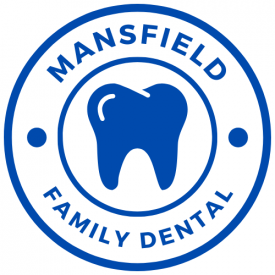What Does Throbbing Tooth Pain Mean?

Throbbing tooth pain may be a sign that you have tooth damage, usually caused by tooth decay or cavities. Throbbing tooth pain is also likely to occur when an infection occurs in your tooth or in your gums.
Table of Contents
Most toothaches are caused by infection or inflammation, which is called pulpitis. The pulp is the inner nerve that keeps your tooth alive and healthy, but when the pulp becomes infected or damaged, serious throbbing pain may occur. A cavity or crack in the tooth can allow germs to get inside the tooth affecting the pulp and causing irritation and infection.
What Are The Potential Causes of Throbbing Tooth Pain?
1. Tooth Nerve Pain
As we briefly mentioned, the nerves for your teeth are located in the pulp (which is why you will feel so much pain when the pulp is damaged.)
Pain within the pulp will usually fall into two different categories, they are:
- Pulpal Sensitivity: This is when you have nerve pain in one single tooth. This will indicate that your pain is coming from the pulp that a cracked, chipped, or broken tooth may have caused. Those issues will likely lead to tooth decay or infection, causing pain.
- Dentinal Sensitivity: This refers to nerve pain that may be a few or all of your teeth; this usually happens because your tooth enamel is worn down. You may notice sensitivity to hot or cold foods. The causes of dentinal sensitivity are the use of teeth whitening products, receding gums, and untreated cavities. It’s also possible to wear down your enamel from using too hard of a toothbrush or brushing your teeth too forcefully.
Some other symptoms that may happen while having throbbing tooth pain are:
- sharp pain when eating
- sensitive teeth
- tenderness in the mouth
- aching in the jaw
- gum swelling
- Redness in gums
- bad taste in your mouth
- a bad smell in your mouth
- pus
- fever
2. Tooth Pain After Filling
Unfortunately, despite your best effort, sometimes issues can arise after getting a filling.
Here are the 3 most common issues associated with tooth pain after a filling:
1. Malocclusion
Pain in your tooth after a filling is usually a result of imperfect positioning. This causes it to interfere with your bite. When your filling is placed too high, it will cause a malocclusion, preventing your teeth from fitting in line with each other.
2. Type of Filling
The type of filling your dentist uses during your filling can affect your tooth pain. One Material that is used, called composite resin, can often cause pain because it can sometimes shrink, creating a gap and causing discomfort or irritation.
3. Galvanic Shock
Galvanic shock occurs when adjacent fillings composed of different metals touch one another. It can produce an electric current that shocks the inside of your mouth!
3. Wisdom Tooth Pain
Everyone has seen the viral post-operation wisdom teeth videos, but many people don’t know about all the pain associated with wisdom teeth beforehand.
Here are 3 common problems that cause pain when your wisdom teeth are coming in:
- Growing Pains: If your wisdom teeth are hurting, they may be growing in. Wisdom teeth breaking through the gums will cause pain, slight swelling, and soreness.
- Cavity: Wisdom teeth may crowd your mouth, creating tight spaces for some teeth. These tight spaces are hard to clean, which can lead to cavities.
- Impacted Tooth: When a wisdom tooth becomes impacted, it causes swelling and pain when chewing. You may also experience pain in the jaw and difficulty opening your mouth.
All sorts of pains and complications can happen in your mouth. Taking care of your mouth and practicing good dental hygiene will make it very unlikely to be affected by severe pain in your teeth. If you play sports, wear a mouthguard to prevent any damage out of your control. Besides that, floss daily to remove plaque, brush twice daily, and see your dentist every six months, and you should be well on your way to a healthy smile. If you are experiencing unbearable pain, you may want to seek an emergency dentist near you immediately.
Throbbing Tooth Pain FAQs
Throbbing tooth pain is a type of dental discomfort characterized by a pulsating or rhythmic sensation in the affected tooth or the surrounding area. It usually results from an underlying dental issue such as tooth decay, gum disease, a dental abscess, or a broken tooth. The throbbing pain arises when the nerves inside the tooth or the tissues around it become inflamed or irritated.
This pain may intensify when pressure is applied to the tooth while chewing, biting down, or even spontaneously without any external stimulus. Throbbing tooth pain can be severe and disruptive, often causing difficulty eating, talking, or even sleeping.
Throbbing tooth pain can be caused by various factors, but it is often associated with dental conditions such as tooth decay, gum disease, dental abscess, or a cracked tooth. Tooth decay occurs when bacteria in the mouth produce acids that erode the tooth enamel, leading to cavities. When the decay progresses and reaches the inner layers of the tooth where the nerves are located, it can result in throbbing pain.
Gum disease, caused by plaque and bacteria buildup along the gum line, can cause inflammation and infection, leading to discomfort and throbbing sensations. It is important to consult a dentist to determine the exact cause of the throbbing tooth pain and receive appropriate treatment.
The treatment of throbbing tooth pain depends on the underlying cause. In many cases, the tooth may require dental procedures such as a filling, root canal therapy, or extraction to address the issue. Antibiotics may be prescribed to combat infections. Over-the-counter pain relievers can help manage the pain temporarily, but it is important to consult a dentist for a proper diagnosis and personalized treatment plan. Maintaining good oral hygiene and visiting the dentist regularly can help prevent future occurrences of throbbing tooth pain.
While it is important to seek professional dental care for throbbing tooth pain, a few home remedies may offer temporary relief. Rinse your mouth with warm saltwater to reduce inflammation and alleviate discomfort. Over-the-counter pain relievers, such as ibuprofen, can help manage the pain. Applying a cold compress or ice pack to the affected area may provide temporary numbing and soothing effects. However, these home remedies are not a substitute for professional dental treatment, so scheduling an appointment with a dentist as soon as possible is crucial.
